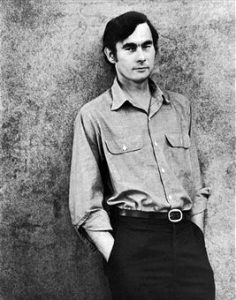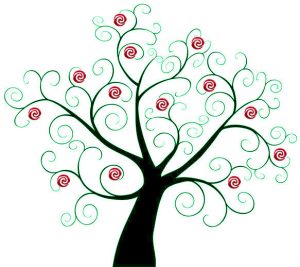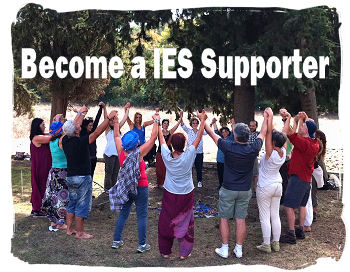
“The goal [of Ecopsychology] is to overcome the historical and persistent gulf between the psychological and the ecological, to see the needs of the Planet
and those of the person as a continuum.
In search of a greater degree of sanity, [Ecopsychology] begins where many would say that sanity comes out of the picture: at the threshold of the nonhuman world. In a sense that weaves science and psychiatry, poetry and politics together, he shows that the ecological priorities of the biosphere are coming to be expressed through our most private
emotional and spiritual travail.
The Earth’s cry for rescue from the punishing weight of the industrial system we have created is our own cry for a scale and quality of life that will free us to become the whole and healthy person that more and more members of our species
are coming to believe we were born to be.
Theodore Roszak
Born from the encounter between Ecology and Psychology, this new prospect teaches us to better understand ourselves and the world around us, to recognize that nature is not something separate from us, but that we too are “nature”. Understanding this, change all attitude and behavior towards the environment around us.
The correlation between the attention to the individual inner well-being and the attention towards the natural environment, with the awareness of how important the nature in the psychic and spiritual equilibrium of the individual, is as old as the world, but in the contemporary scientific field has only acquired a well-defined name and direction since the 1990s. Shortly before then, many individual teachers, therapists, social workers, doctors and philosophers, since the 70s, pursued and applied a line of thought and work in this direction, with a joint commitment on the two fronts. The terms that distinguish this approaches are many: green psychology, psychoecology, green therapy, global therapy, transpersonal ecology, shamanic counseling, ecotherapy, etc.
The term “Ecopsychology”, which provides a plan of dialogue between all these approaches, was born in 1989, within a group of Berkeley academics – Robert Greenway, Elan Shapiro, Alan Kanner and Mary Gomes – who met to discuss the contribution that Psychology can give to a different management of the contemporary ecological crisis. Also contributing to the reflection is Theodore Roszak, historian of culture. In 1996, Fritjof Capra cites Roszak and Ecopsychology in his book The Network of Life, and this is the first worldwide launch.
Ecopsychology is a way of looking at the human being and the world no longer as if they were two separate and independent things, but recognizing how much we are part of life and this beautiful green and blue planet. In Ecopsychology, Psychology – which studies man – and ecology – who studies the environment – meet and collaborate to discover how much mutual help these two young sciences can give to solve each of the most topical problems that is facing.
The principles of Ecopsychology
 Theodore Roszak is said to have formalised the term “Ecopsychology” in his book The voice of the Earth although the term was already used in some instances to describe the work of other psychologists and environmentalists at Berkeley. Theodore Roszak, who is a pioneer of understanding counterculture, was interested in exploring the entanglement of planetary health and human wellbeing. Ecopsychology, according to Roszak, aims to overcome dualistic representations of the ecological and the psychological. He continued to suggest “principles of Ecopsychology”. Theodore Roszak ended his career as Professor Emeritus of history at California State University, East Bay.
Theodore Roszak is said to have formalised the term “Ecopsychology” in his book The voice of the Earth although the term was already used in some instances to describe the work of other psychologists and environmentalists at Berkeley. Theodore Roszak, who is a pioneer of understanding counterculture, was interested in exploring the entanglement of planetary health and human wellbeing. Ecopsychology, according to Roszak, aims to overcome dualistic representations of the ecological and the psychological. He continued to suggest “principles of Ecopsychology”. Theodore Roszak ended his career as Professor Emeritus of history at California State University, East Bay.
read more
A transdisciplinary approach
Ecopsychology is an approach that transits between interdisciplinarity and transdisciplinarity and is the result of the proposed dialogue between Psychology and Ecology. Ecopsychology is interdisciplinary, as it is based on concepts from both the sciences – and others, related to the science of sustainability – but recognizes their inadequacy to build a broad framework for understanding the environmental crisis and its correlations with the Psyche. It is trans-disciplinary, to the extent that it goes beyond every discipline, in the search for a critical thought and at the same time integrated between the human conscience, its modes of expression and the cultural, social and economic realities, that it creates and recreates in the natural context where they come from. It is trans-disciplinary, because the central focus of Ecopsychology is the relationships of the human being with the web of life.
A contribution to Earth Identity
In his book Homeland Earth: A Manifesto for the New Millenium, Edgar Morin – one of the most prestigious figures in contemporary French and international culture – invites everyone to recognize that “Each one of us comes from the Earth, is part of the Earth, is on Earth”. The sociologist invites us to assume the terrestrial citizenship, our community of destiny.
“Earth identity” thus becomes the next goal of human consciousness.
In his book Seven complex lessons in education for the future, that of “Teaching the Earth identity” is the 4° point: “Today, the fundamental global objective of all education aspiring not only to progress but to the survival of humanity is to Civilize and Unify the Earth and Transform the human species into genuine humanity. The education of the future should teach an ethics of planetary understanding”.
And it is also at the service of this vision that Ecopsychology works: by awakening an Earth awareness, we approach the environment in a spontaneously respectful way, feeling ourselves an active part of ecosystems that are increasingly recognized to be wider and more complex. Furthermore, the reconnection with our deepest terrestrial identity promotes the ability to work in groups with creative and constructive synergies, indispensable for our future of sapiens.
Main Ecopsychology references
There are many books which explore directly or indirectly what is understood to form the field or be part of the field of Ecopsychology. Here are some suggested readings of a very long and growing list.
a basic bibliography


Do you want to learn more about the different fields where those ideas creates practices, exercises, services, personal growht?
more on Ecopsychology’s applications










